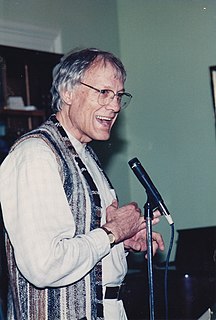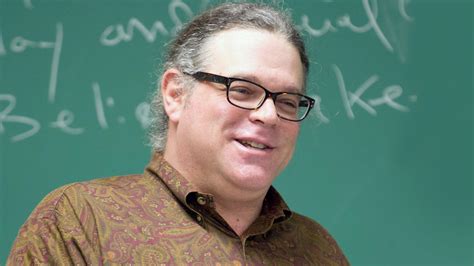A Quote by Genesis P-Orridge
Everything we do is art, philosophy, mysticism, cultural commentary.
Quote Topics
Related Quotes
Of course, mysticism is very hard to isolate because, given the kind of consciousness that I was sort of instructed in as religious consciousness; that borders on mysticism so closely that it's hard to know whether you qualify or not, or whether mysticism is artificially isolated when it is treated as a separate thing from experience. Obviously, mysticism can be a form of madness, but then consciousness can be a form of madness.
The three values which men had held for centuries and which have now collapsed are: mysticism, collectivism, altruism. Mysticism — as a cultural power — died at the time of the Renaissance. Collectivism — as a political ideal — died in World War II. As to altruism — it has never been alive. It is the poison of death in the blood of Western civilization, and men survived it only to the extent to which they neither believed nor practiced it.
Mysticism has often been misunderstood as the attempt to escape this simple, phenomenal world to a more pure existence in heaven beyond. This is not mysticism, but Gnosticism. Biblical mysticism is the attempt to exit 'this world' to an alternative reality that pervades the old order. Its goal is to jettison the mind-set that says 'greed is good,' selfishness is normal,' and 'killing is necessary.' Mysticism in biblical terms is not escapism, as so many have caricatured it, but a fight for ethics and social change.
It is a thoughtless and immodest presumption to learn anything about art from philosophy. Some do begin as if they hoped to learnsomething new here, since philosophy cannot and should not do anything further than develop the given art experiences and the existing art concepts into a science, improve the views of art, and promote them with the help of a thoroughly scholarly art history, and produce that logical mood about these subjects too which unites absolute liberalism with absolute rigor.
It's impossible to say that live art enjoys any single status in the information age--there are versions of live art that are still primarily art-world phenomena, others that appeal to much broader audiences. The Burning Man festival is a case in point--an event featuring performance that is itself a performance, which partakes simultaneously of frontier mythology, a counter-cultural impulse, and popular cultural visibility.


































